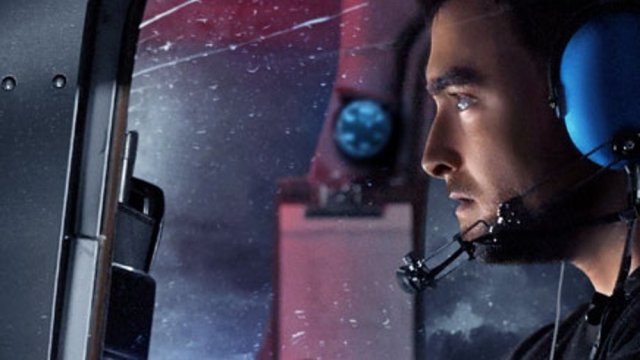by Tim Schildberger
Jesper Ganslandt is a Swedish director and actor who is quickly establishing himself in the European independent film world, which makes now the perfect time to try his first English language movie, a low budget psychological thriller called Beast of Burden. The film, set mostly in the cockpit of a small plane running illegal drugs from Mexico to the USA, needed a strong lead actor to carry the story. For that, Jesper turned to Daniel Radcliffe to play a complicated drug mule pilot.
I spoke with Jesper Ganslandt recently about Beast of Burden. We discussed creating a compelling character who’s not entirely a “good guy,” working with Daniel Radcliffe, and his advice for writers with small, independent film scripts.
Tim Schildberger: What was it about this script that made you choose it as your first English language film?
Jesper Ganslandt: When I read it I thought, Adam (Hoelzel) has done a fast moving, playful, subjective story around this character Sean who’s a failed army pilot being a drug mule one last time to help his sick wife. All these set ups you get to learn as the movie gets deeper and deeper. It reminded me of a film I’ve done in Sweden, so I thought it was an interesting opportunity to combine European filmmaking and a Hollywood looking glass.
Tim Schildberger: Daniel’s character – I was never quite sure if he was a good guy or a bit of a dick.
Jesper Ganslandt: You don’t know. Like with life sometimes. [Laughs]
Tim Schildberger: So you were definitely playing with our perceptions?
Jesper Ganslandt: Oh yeah – and it was good for Dan, too, to be able to explore desperation and worry and anxiety with all the pressure he’s under. For me, I didn’t feel it was necessary at all to make him a good guy. He has his motivation – and those are good intentions, but he makes a lot of bad choices along the way. It’s like watching a train wreck.
Tim Schildberger: With a script like this, does it evolve once you get a particular actor on board? Does the character shift, or was this pretty much who he was before Daniel arrived?
Jesper Ganslandt: It definitely shifts a little bit, it always should adapt. But it’s basically the character on the page. We talked a lot on the phone, me and Radcliffe, before he came to Savannah where we were shooting. Then we had a week of readings and rehearsals, and the screenwriter Adam Hoelzel was there so we could re-write and change as we were rehearsing.
I always wanted someone who’s not the expected leading man for this. It was interesting and compelling what Daniel Radcliffe would bring to this instead of a gruffer actor. In those terms it added a lot of contrast, and this is an interesting marriage.

Tim Schildberger: What were the challenges trying to tell a story in such a confined, restricted setting?
Jesper Ganslandt: You’ve got to commit to, “This is the space we’re going to be in,” and not be fearful it’s going to be boring or long. I wanted to create an atmosphere where the audience would focus on details. Start to deprive them of things so they start caring about the details more. That was kind of enjoyable once you commit to that because you know the framework of the narrative. But going into minute forty, everyone knows a lot and you don’t want to repeat, so I decided to break the concept and cut to the other end of the calls. And then the story ends up on the ground together for bigger moments.
Tim Schildberger: We all watch movies and try and guess what’s going on, and it felt like you were aware of that and were trying to explore it.
Jesper Ganslandt: Yeah exactly – there are some films that stick with the concept all the way through, like Lockeand Phone Booth, but it felt to me if you establish the concept, everyone thinks they know, then you can mess around a little bit, because there are no rules. As long as you do it with an awareness.
Tim Schildberger: Finally – any advice for a writer with an indie script of this style? Because it’s definitely not standard “Hollywood” fare.
Jesper Ganslandt: Creatively, I think it’s good to hone in on one idea. If it’s one thing you feel that makes it special – that’s what you should explore, and try not to get bottled up in two or three potentially bigger ideas. What attracted me to this script was that it was fairly simple – he was just flying from A to B and posed with some challenges. It’s easy to grasp, and then somebody like a director or actor would come on board and add stuff.
The other thing – having some representation really does help. It’s standard stuff I know, but it really is true. The good thing is content is going up – there is so much interest in new ideas. That’s something that struck me taking meetings in Hollywood coming from Sweden – the interest in just ideas is pretty huge, and that’s inspiring I think.
Beast of Burden is in theaters and On Demand / Digital HD today
